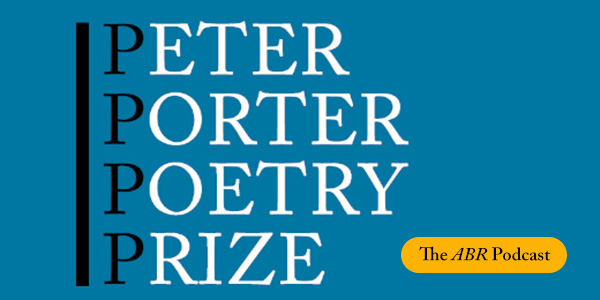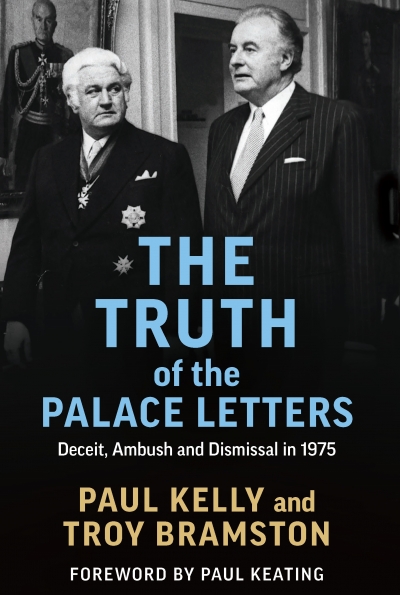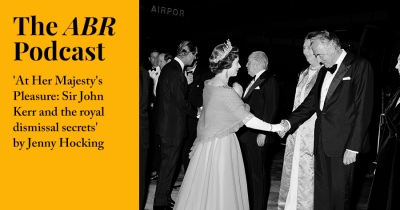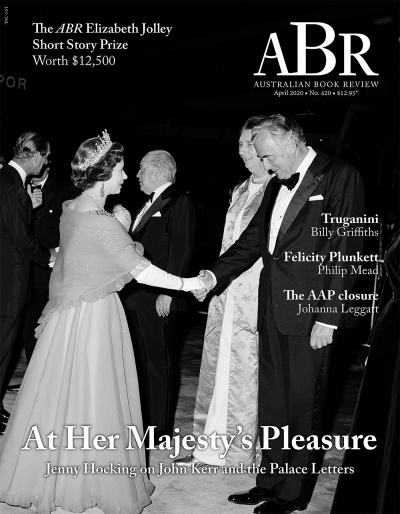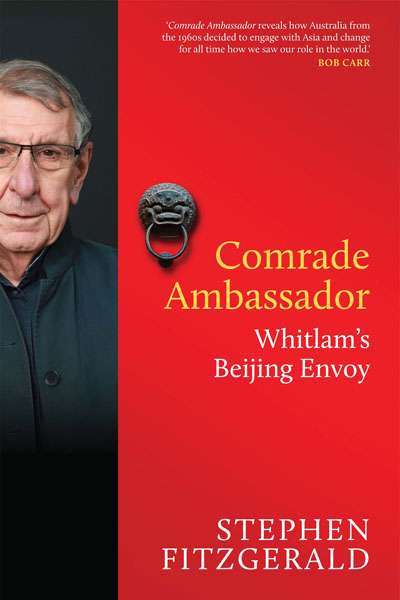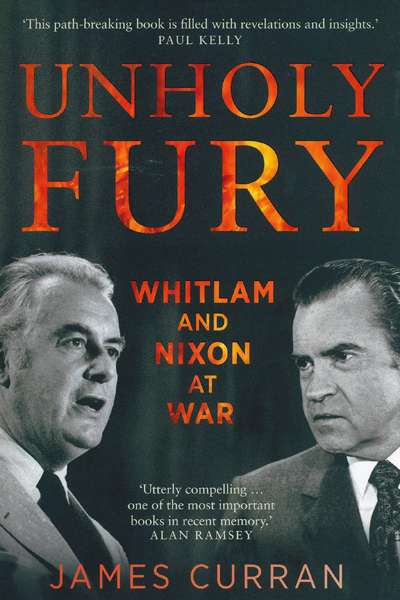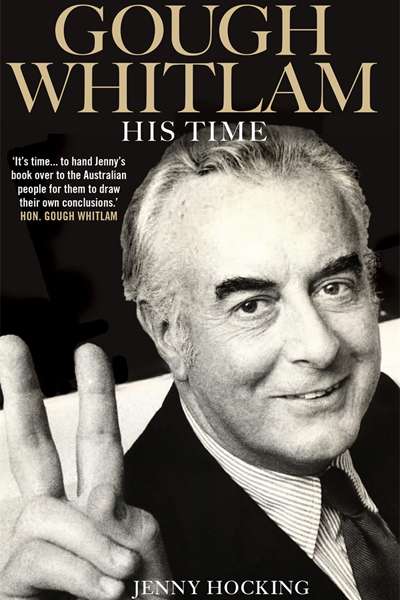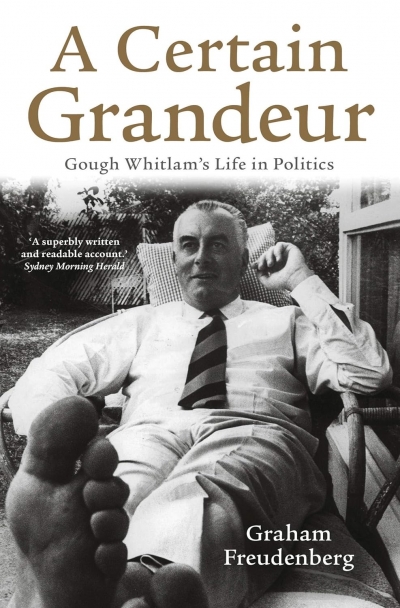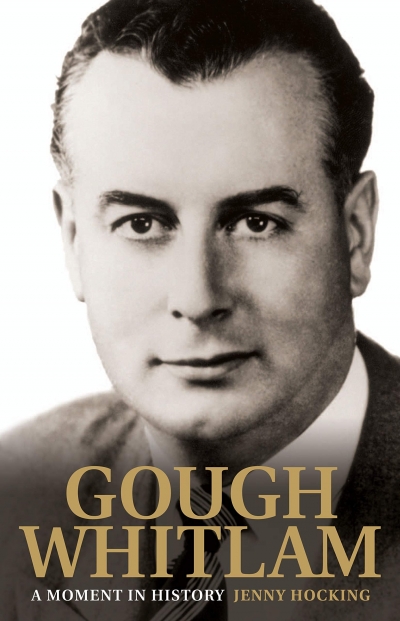Accessibility Tools
- Content scaling 100%
- Font size 100%
- Line height 100%
- Letter spacing 100%
Gough Whitlam
The ABR Podcast
Released every Thursday, the ABR podcast features our finest reviews, poetry, fiction, interviews, and commentary.
Subscribe via iTunes, Stitcher, Google, or Spotify, or search for ‘The ABR Podcast’ on your favourite podcast app.
2025 Peter Porter Poetry Prize Shortlist
Read by the poets
This week on The ABR Podcast we feature the 2025 Peter Porter Prize shortlisted poems, as read by the five poets, published in the January-February issue of ABR.
Recent episodes:
The Truth of the Palace Letters by Paul Kelly and Troy Bramston & The Palace Letters by Jenny Hocking
'At Her Majesty's Pleasure: Sir John Kerr and the royal dismissal secrets' by Jenny Hocking
In 1975 the governor general, John Kerr, removed a democratically elected Labor government, amid great intrigue and subterfuge. The dismissal of the Whitlam government remains one of the blights on our democracy – perhaps the most controversial event in Australian political history. And yet the full record of what happened in the weeksand months leading up to the dismissal is still unavailable to Australian citizens because of the intransigence of Queen Elizabeth and the expensive lengths to which the National Archives of Australia have gone to suppress access to John Kerr’s correspondence with Buckingham Palace.
... (read more)The dismissal of the Whitlam government by the governor-general, Sir John Kerr, on 11 November 1975 was one of the most tumultuous and controversial episodes in Australian political history. The government had been elected on 2 December 1972 and returned at the May 1974 double dissolution, with Whitlam becoming the first Labor leader to achieve successive electoral victories.
... (read more)
